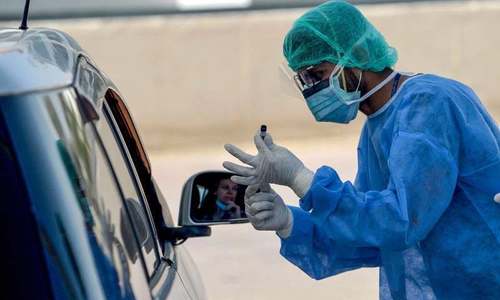Researchers in Australia have devised a test that can determine the novel coronavirus infection in about 20 minutes using blood samples in what they say is a world-first breakthrough.
The researchers at Monash University said their test can determine if someone is currently infected and if they have been infected in the past.
“Short-term applications include rapid case identification and contact tracing to limit viral spread, while population screening to determine the extent of viral infection across communities is a longer-term need,” the researchers said in a paper published in the journal ACS Sensors on Friday.
The research team was led by BioPRIA and Monash University’s Chemical Engineering Department, including researchers from the ARC Centre of Excellence in Convergent BioNano Science and Technology (CBNS).
Their test, using 25 micro-litres of plasma from blood samples, looks for agglutination, or a clustering of red blood cells, that the coronavirus causes.
While the current swab test is used to identify people who are infected with the coronavirus, the agglutination assay — or analysis to detect the presence and amount of a substance in blood — can also determine if someone had been recently infected, after the infection is resolved, they said.
Hundreds of samples can be tested every hour, the researchers said, and they hope it can also be used to detect antibodies raised in response to vaccination to aid clinical trials.
A patent for the innovation has been filed and the researchers are seeking commercial and government support to scale up production.
The novel coronavirus has infected more than 13.8 million people around the world and killed nearly 600,000 since it emerged in China late last year. Australia has reported more than 11,000 cases and 116 deaths.












































